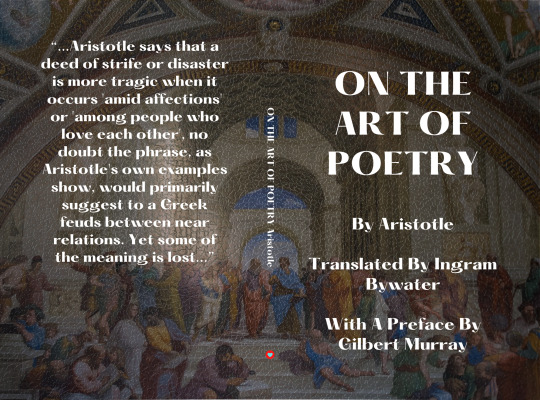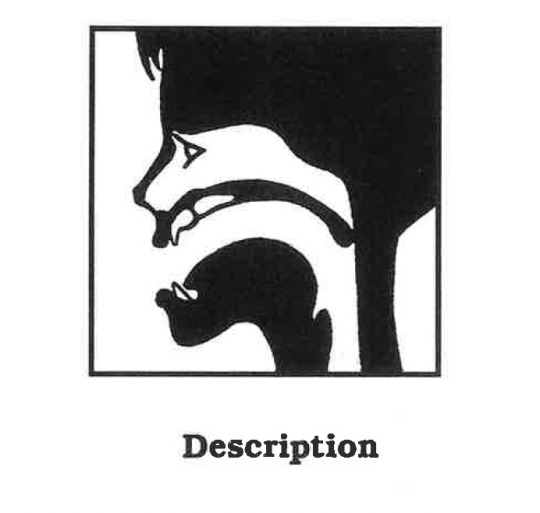#diction
Explore tagged Tumblr posts
Photo

Diction
818 notes
·
View notes
Text
Everyone else: *twerking*
Ze: I’m gonna leave you guys alone.
#private recording 1#zeroyalviking#mr sark#seananners#gassymexican#nfen#diction#bruce greene#daily pr1 clips
63 notes
·
View notes
Note
favorite word?
"The."
A close second is "antidisestablishmentarianism," but I'm also partial to "extravaganza."
4 notes
·
View notes
Text

Le charme de l'accent de nos grands-parents.
11 notes
·
View notes
Text
Obviously my favorite dictionary is the Oxford one but I do have to admire the pluck of Merriam-Webster. If I cannot find a word in Oxford, it’s usually there, which I appreciate but must admit I also judge.
2 notes
·
View notes
Photo

We use “fewer” for countable nouns:
fewer cats
fewer pens
fewer cars
fewer typos
We use “less” for uncountable/mass nouns:
less air
less water
less money
less milk

Website | Twitter | Instagram | Medium | Pinterest | Ko-fi | eBook
#grammar#usage#diction#less#fewer#English#English class#learning English#writing#ESL#EFL#ELA#ELT#humor#tweet
20 notes
·
View notes
Text

A poem by Edgar Allan Poe from his tale The Fall of the House of Usher published year 1839.
#edgar allan poe#The fall of house of the usher#1839#original poem#author#prosa#enigmatic#Diction#fiction#mind in the gutter
3 notes
·
View notes
Text
Delving into Poetic Wisdom: A Review of "On the Art of Poetry" by Aristotle

Aristotle's "On the Art of Poetry," translated by Ingram Bywater, stands as a seminal work in literary criticism, offering profound insights into the nature and function of poetry that continue to resonate with readers and scholars alike. Written in the 4th century BCE, this treatise serves as a comprehensive examination of the principles and techniques that underlie the creation of poetry, providing valuable guidance for poets and readers alike.
At its core, "On the Art of Poetry" is a testament to Aristotle's keen intellect and analytical prowess. In this work, Aristotle explores the various elements that contribute to the effectiveness of poetry, including plot, character, diction, and spectacle. Through his systematic analysis, Aristotle seeks to uncover the universal principles that govern the art of poetry, shedding light on its essential nature and its role in human society.
One of the most compelling aspects of "On the Art of Poetry" is Aristotle's emphasis on the importance of mimesis, or imitation, in poetry. According to Aristotle, poetry is a form of imitation that seeks to represent the actions, emotions, and experiences of human life. Through the skillful use of language and imagery, poets are able to create a vivid and lifelike portrayal of the world, inviting readers to engage with their work on a profound emotional and intellectual level.
Moreover, "On the Art of Poetry" offers valuable insights into the principles of dramatic structure and the role of catharsis in tragedy. Aristotle argues that tragedy is a form of poetry that evokes feelings of pity and fear in the audience, leading to a purgation or cleansing of these emotions. Through the depiction of the fall of a tragic hero, tragedy allows audiences to confront their own mortality and the fragility of human existence, ultimately leading to a deeper understanding of the human condition.
In addition to its exploration of tragedy, "On the Art of Poetry" also examines the principles of comedy and epic poetry, providing valuable guidance for poets working in these genres. Aristotle discusses the importance of unity of plot, character, and theme in epic poetry, as well as the role of humor and satire in comedy. Through his analysis, Aristotle highlights the diversity of poetic forms and the unique challenges and opportunities that each genre presents to the poet.
In conclusion, "On the Art of Poetry" by Aristotle is a timeless classic that continues to inspire and enlighten readers with its profound insights into the nature of poetry. Aristotle's systematic approach to literary criticism, coupled with his keen observations and analytical rigor, make this work an indispensable resource for anyone interested in the art of poetry. With its timeless wisdom and enduring relevance, "On the Art of Poetry" remains a cornerstone of literary theory and a testament to the enduring power of poetic expression.
Aristotle's "On the Art of Poetry," is available in Amazon in paperback 12.99$ and hardcover 18.99$ editions.
Number of pages: 116
Language: English
Rating: 10/10
Link of the book!
Review By: King's Cat
#Aristotle#Poetry#Literary criticism#Mimesis#Imitation#Dramatic structure#Tragedy#Catharsis#Comedy#Epic poetry#Unity of plot#Characterization#Diction#Spectacle#Poetics#Aesthetic principles#Greek literature#Philosophical discourse#Aristotle's theory#Literary analysis#Poetic form#Emotion#Human experience#Morality#Ethics#Aesthetics#Universal principles#Literary genres#Rhetoric#Imagination
3 notes
·
View notes
Text
Compilation of feelings put to words of love in comments

3 notes
·
View notes
Text

i love music class
5 notes
·
View notes
Text
5 notes
·
View notes
Text
4.28 Contradiction Life
4.28 Contradiction Life Poem by Emilia Sameyn 16/11/2023 (NEDERLANDS BENEDEN)
Warning: Slacking, Joblessness, Depression?
He has a Master's Degree, Yet no Work Nothing must be Done, yet He has no Time
Awake during Day, yet can't Sleep at Night He's a NonConformist, yet Doesn't Party All Night and Day
He's Open-Minded, yet Never took Drgs. He wants Love, but not a Relation He's NonMonogamous, yet Never had Sx
He has Friends, yet feels Lonely He goes Outside, but never meets People He loves Nature but gets Lost in the City
There has Never been so much Food Yet he never Eats He wants to be Useful but Unable to Do It
Surviving has Never been this Easy Yet he Struggles to Survive
He Wishes to Live yet Longs for Death He Lives a Simple Life, yet He's so Complex Neither Man nor Woman
He likes Kids, but Doesn't want Any Loves his Family and Friends But never visits Them
Never been so Connected, Never been so Lonely
They Promised it would Stay there Forever Only to take it Away
He says he is Normal, yet this Crazy World Calls him Utterly Insane
Normal people Turn Out to be Weirdos And Weirdo's Turn Out to be Squares
Life is so Little, Yet so Big They promised it Would be Easy and Simple But all is Hard and Complex It's a Contradiction, A Contradiction Life
---------------------------
---------------------------
4.28 Contradictie Leven Gedicht van Emilia Sameyn 16/11/2023
Waarschuwing: Slacking, Werkloosheid, Depressie?
Hij heeft een MasterDiploma, maar Geen Werk Er Moet niets Gedaan zijn, maar hij heeft Geen Tijd
Overdag Wakker, maar 's Nachts niet kunnen Slapen Hij is een Non-Conformist, maar Feest niet De hele Nacht en Dag
Hij is Ruimdenkend, maar heeft nooit Drgs gebruikt Hij wil Liefde, maar geen Relatie Hij is Niet Monogaam, maar heeft nooit Sks gehad
Hij heeft Vrienden, maar voelt zich Eenzaam Hij gaat naar Buiten, maar ontmoet nooit Mensen Hij houdt van de Natuur, maar verdwaalt in de Stad
Er is nog nooit zoveel Eten geweest Toch Eet hij nooit Hij wil Nuttig zijn, maar kan niets Doen
Overleven was nog Nooit zo Eenvoudig Toch Worstelt hij te Leven
Hij wil Bestaan, maar Verlangt naar Dood Hij leidt een Simpel Leven, maar toch is hij Complex Noch Man noch Vrouw
Hij ziet graag Kinderen, maar Wil er Geen Houdt van Familie en Vrienden Maar Bezoekt ze Nooit
Nog nooit zo Verbonden, Nog nooit zo Eenzaam
Ze beloofden dat Het daar voor Altijd zou blijven Alleen maar om het Weg te halen
Hij zegt dat hij Normaal is, maar toch noemt deze Zotte Wereld Hem Volkomen Krankzinnig
Normale mensen blijken Weirdos te zijn En Weirdo's blijken Saai en Normaal te zijn
Het leven is zo Klein en toch zo Groot Ze beloofden dat het Simpel en Eenvoudig zou zijn Maar alles is Moeilijk en Complex Het is Tegenstrijdig, Een Tegenstrijdig Leven
#contradiction#poem#poet#contra#diction#conrtradictie#love#art#nederlands#dutch#life#writing#kunst#poetry#english
2 notes
·
View notes
Text
This scene from TrueBlood will always live rent-free in my mind whenever I hear or see that word.
"Give me your TOWNGS." -Arlene Fowler 🤣


youtube

#tongs#tongs is the correct answer#lol#trueblood#true blood#arlene fowler#terry bellefleur#little break#poll#diction#language#Youtube
179K notes
·
View notes
Text
i adore diction
I think I like him. (statement)
I like him, I think. (afterthought)
I like him, I think, when he smiles at me and makes me feel like I'm the only one he cares about. (questioning feelings ?)
i could go on
#diction#figurative language#i remember why I'm taking AP again ig#idk if I described this right but oh well#literature#drabbles
1 note
·
View note


